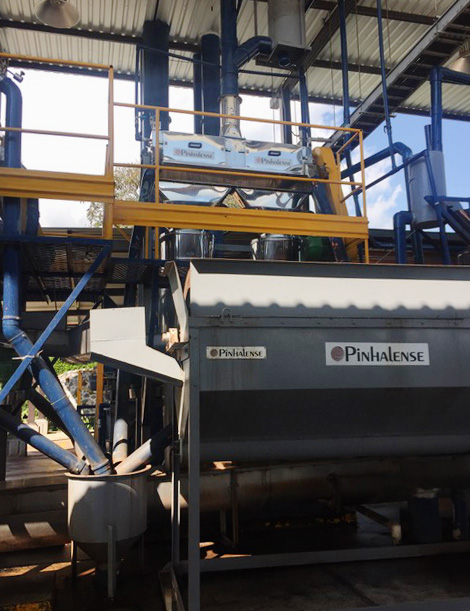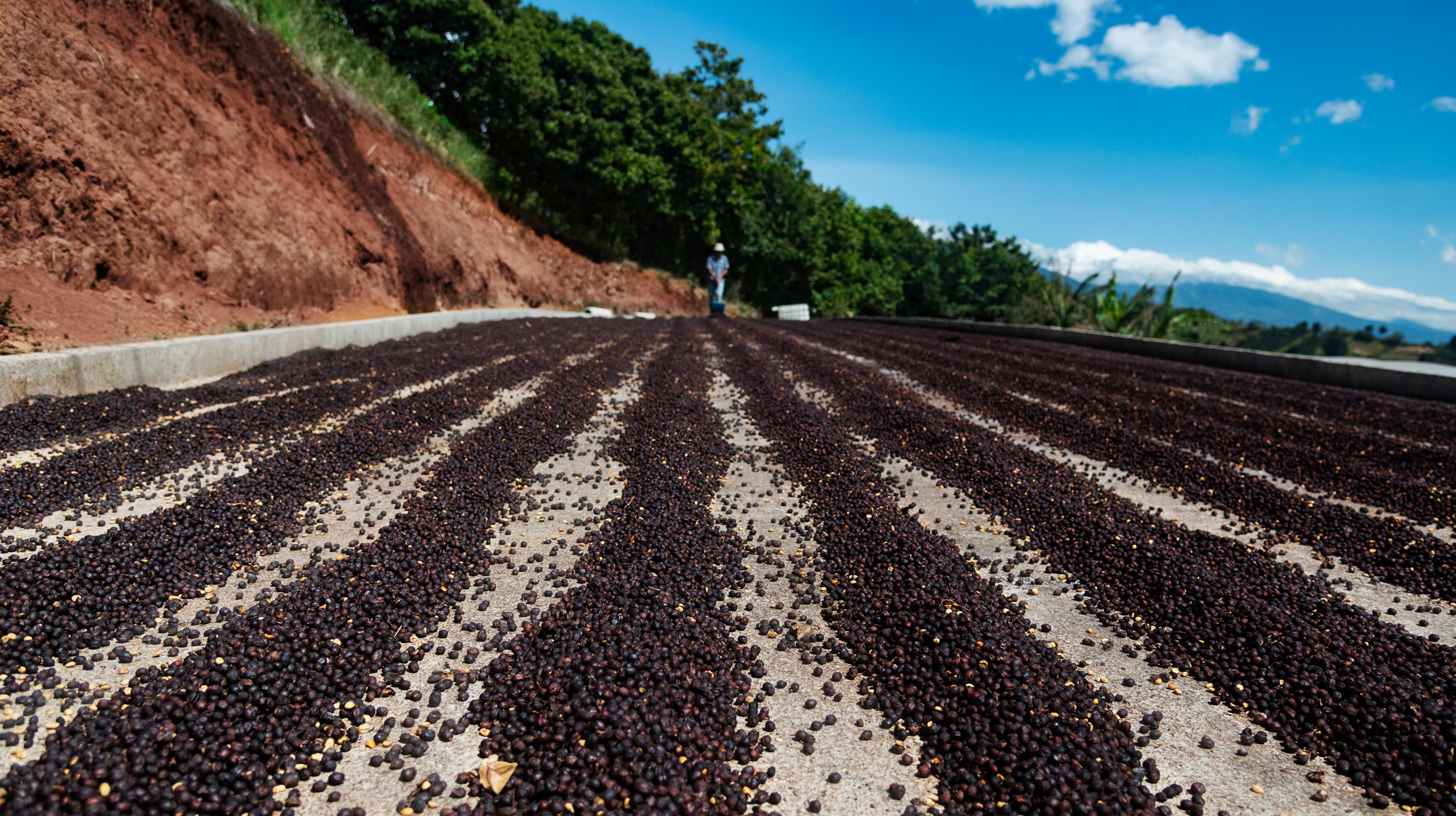To improve quality, millers at Finca La Senda remove unripe cherries by hand just prior to the pulping process.
The fundamental methods of coffee processing used for most coffees in Guatemala were established more than a century ago. However, in recent years the specialty coffee industry has shown increasing interest in alternative processing methods.
As in other countries, some producers in Guatemala have begun experimenting with novel methods to develop new flavour profiles. Other producers have been refining existing techniques to make processing more efficient or environmentally friendly.
To learn more about how processing is changing in the country, we spoke with Nadine Rasch, founder of the Guatemalan specialty coffee importer Primavera Coffee.
 Nadine Rasch is the founder of Primavera Coffee, a Guatemalan specialty coffee importer.
Nadine Rasch is the founder of Primavera Coffee, a Guatemalan specialty coffee importer.
‘Surprisingly little has changed [in the past 100 years],’ Rasch says. ‘Ninety-nine percent of coffee in Guatemala is still processed with the traditional washed process and dried either by the sun or hot air dryers. Historically, there has been a lot of water resources, and It is the way things have been done in all of Central America for over a century.’
Farmers’ decisions whether to process their own coffee or to sell cherry to a wet mill often depend on their availability of water, Rasch explains. ‘Most small producers in Huehuetenango have a very small wet mill in their home and will sell coffee in parchment, as there are suitable water resources in order to ferment and wash the coffees. In other regions, they rely on cooperative mills to process the coffee. In some regions that lack water resources, producers sell their coffee in cherry to a “coyote”, or middleman, who then sells the cherries to a bigger, commercial wet mill.’
 A mechanical washer at a commercial wet mill in Guatemala. Image courtesy of Primavera Coffee.
A mechanical washer at a commercial wet mill in Guatemala. Image courtesy of Primavera Coffee.
On many farms, the way the washed process is carried out has changed. ‘Some bigger commercial farms have mechanical washers in order to speed up the process,’ Rasch says. ‘This allows coffees to be washed without having to wait for the fermentation process to break down the sugars found in the beans.’ Rasch believes that mechanical washing can compromise the coffee quality, however. ‘Letting the sugars in the coffee break down via fermentation — whether that be in a fermentation tank or in its own skin, as with naturals, produces superior quality.’
Modern mechanical dryers that control temperature and airflow to dry the beans gently have greatly improved on the original Guardiolas. ‘I think you can use mechanical drying and obtain good quality if the temperature and time parameters are followed,’ Rasch says. ‘It’s a more controlled environment that can yield very good results.’
 Natural process coffee drying on a patio. Sun drying is traditionally thought to be superior to mechanical drying, but modern mechanical dryers have improved greatly, and are used to produce many high quality lots in Guatemala.
Natural process coffee drying on a patio. Sun drying is traditionally thought to be superior to mechanical drying, but modern mechanical dryers have improved greatly, and are used to produce many high quality lots in Guatemala.
In this video, Millers at Finca La Senda dry coffees on the concrete patio
The effects of climate change, coupled with an increased interest in alternative processing methods in the specialty industry, has been leading an increasing number of farmers to experiment with new techniques, however. ‘There are some small, specialty producers experimenting with honey and natural processes,’ Rasch says. ‘The success of these processes depends on the weather conditions, their processing method, and the attention to detail.’
The costs and risks involved in investing in new methods can be considerable. ‘It is important to experiment in small quantities and take measured risks in order to figure out what is the best processing method for the farm, [factoring in] the varietals and the microclimate of each producer,’ Rasch says. The producers that benefit are the ones who can work with experienced cuppers to advise them and who can gain access to the international market, she says.